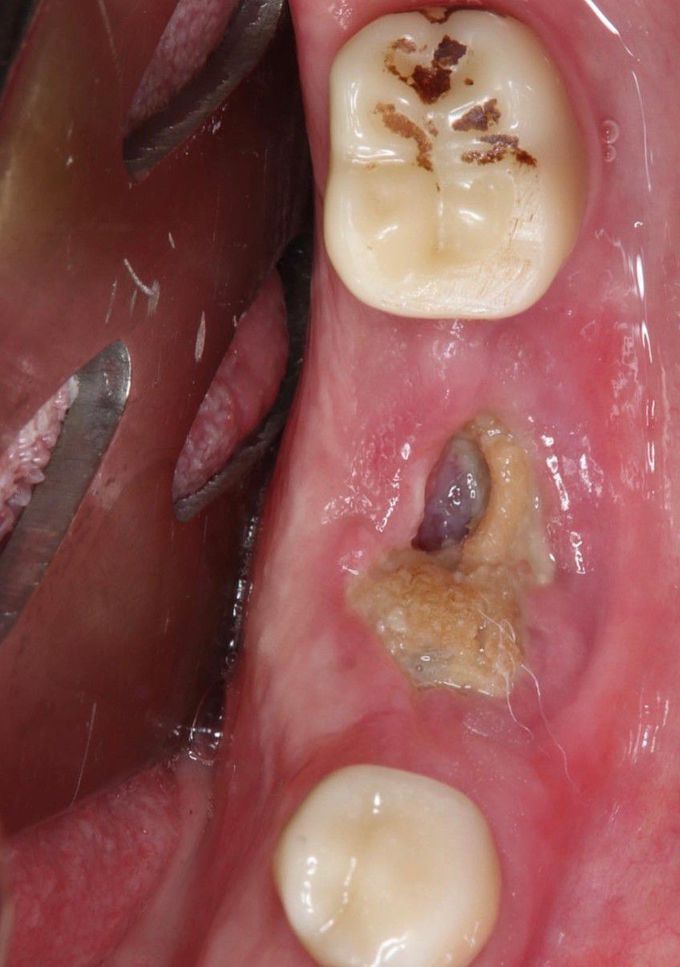


Management of MRONJ
An Update on Management of Medication-Related Osteonecrosis of the Jaw (MRONJ). The AAOMS revised their position paper on MRONJ last year (2022), which is updated from 2014. A few key points: - New meds as risk factors for MRONJ: Tyrosine kinase inhibitors (TKIs such as sunitinib, monoclonal antibodies (bevacizumab), fusion proteins (aflibercept), mTOR inhibitors (everolimus), radiopharmaceuticals (radium 223), selective estrogen receptor modulators (raloxifene) and immunosuppressants (methotrexate and corticosteroids) - Duration of medication therapy DOES NOT significantly increase the risk of MRONJ - Bone turnover markers are NOT validated (ie CTX) for clinical decision making in regards to MRONJ risk - Dental implants should be avoided in cancer patients receiving IV antiresorptive or antiangiogenic medications (not new, necessary reminder) My patient has a history of lung cancer and treated with IV zometa. A few months prior to seeing me, had tooth 19 and implant 20 removed. She subsequently developed stage 2 MRONJ. We started her on pentoxifylline/Vit E for 2 weeks and amoxicillin prior to surgical debridement. We continued PENTE for two weeks post op and augmentin. She is healing beautifully 1 month out with no pain.

